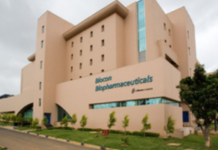New Delhi– The Bill & Melinda Gates Foundation has announced to provide $7 million to conduct genomic research in eight low and middle income countries, including India. Other countries are South Africa, Senegal, Nigeria, Ghana, Kenya, Uganda, and Brazil.
The commitment, made at the 17th Grand Challenges Annual Meeting held between November 8 and 11, is part of the foundation’s newly launched Global Immunology and Immune Sequencing for Epidemic Response (GIISER) programme. GIISER works to ensure scientists have the capacity to rapidly detect if new SARS-CoV-2 variants in their communities show signs of evading immune response.
GIISER will operate as a decentralised network of autonomous and geographically distinct hubs that are able to connect local pathogen sequencing data and clinical epidemiology with local immunological understanding and tools.
Initial focus areas will include data science, such as mathematical modeling to inform national malaria control programmes, digital health services for pregnant women, and innovations to close gaps identified by current programmes for eliminating neglected tropical diseases.
The Foundation also committed an initial $50 million towards a new 10-year programme to support science and innovation in low- and middle-income countries. It is also awarded to science leadership fellowships to 14 African scientists.
“We need the ideas and leadership of the people who are closest to the global health challenges we’re working to address,” said Mark Suzman, CEO of the Bill & Melinda Gates Foundation.
The programme “represents our commitment to advance innovation and equity while strengthening local partners in a sustainable way”, she added. (IANS)







